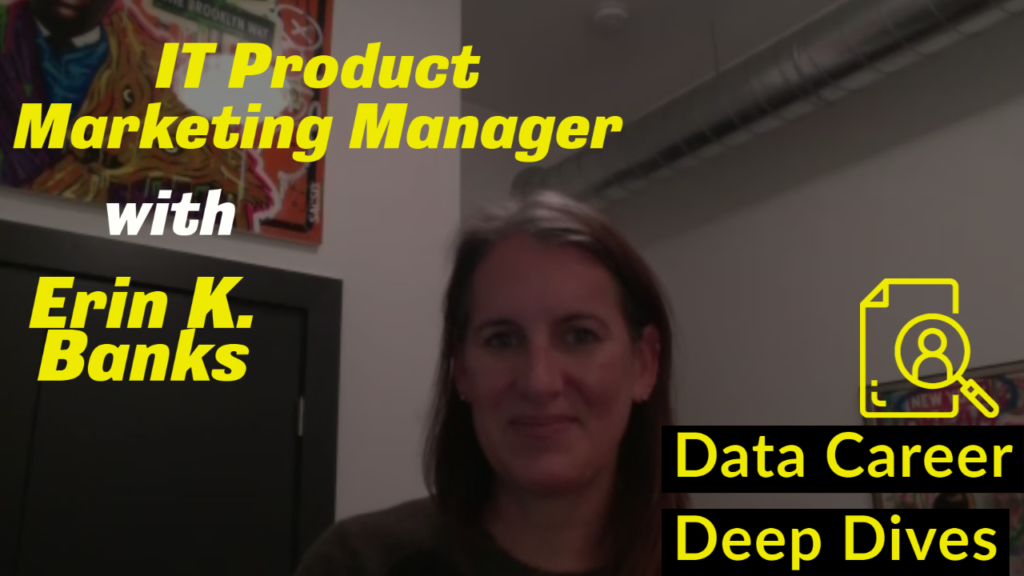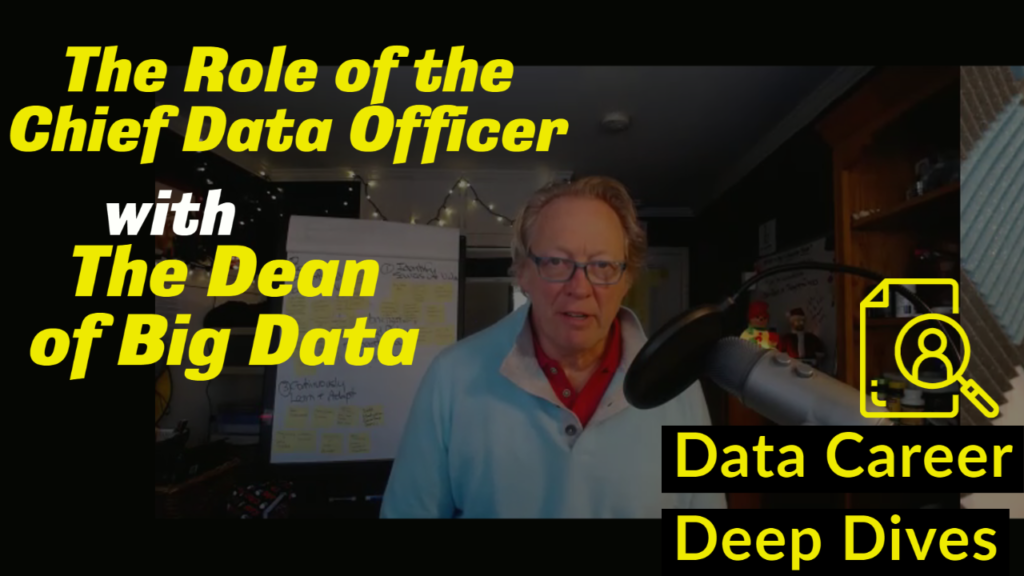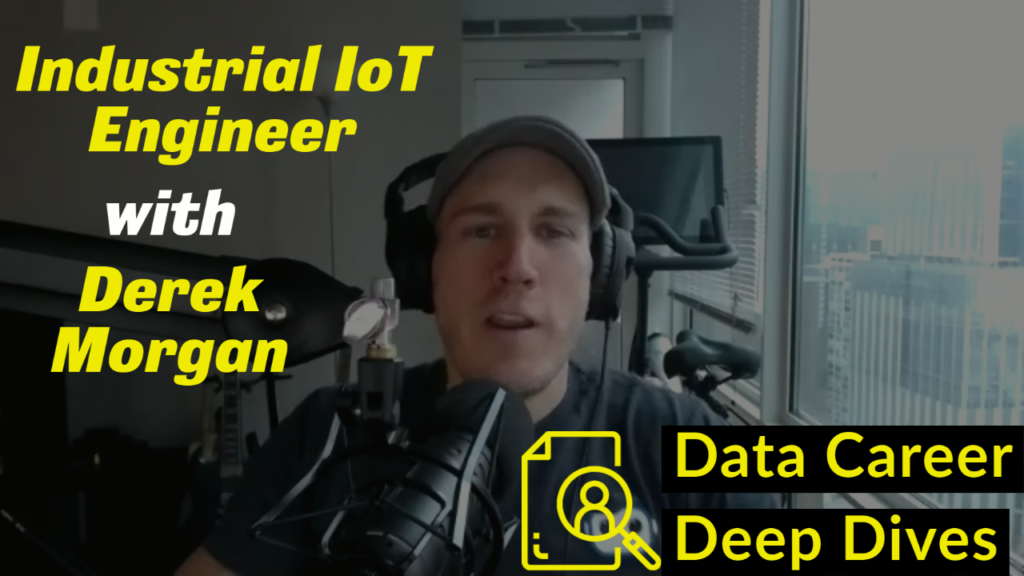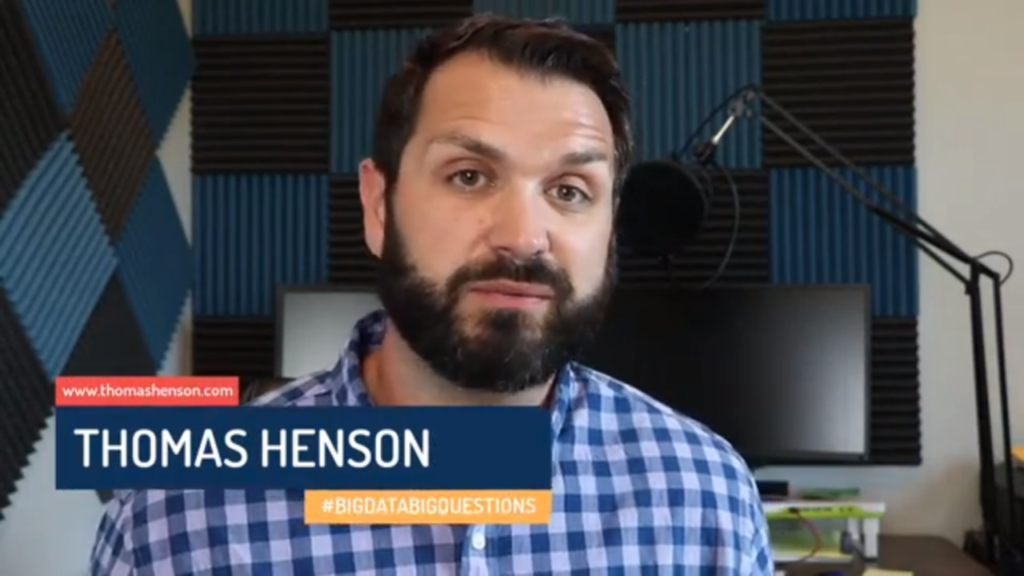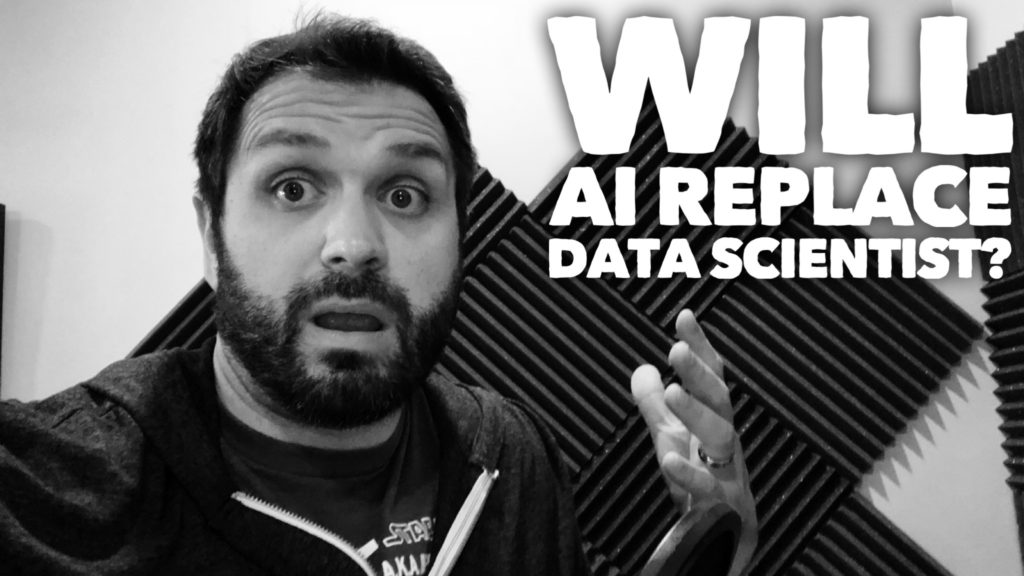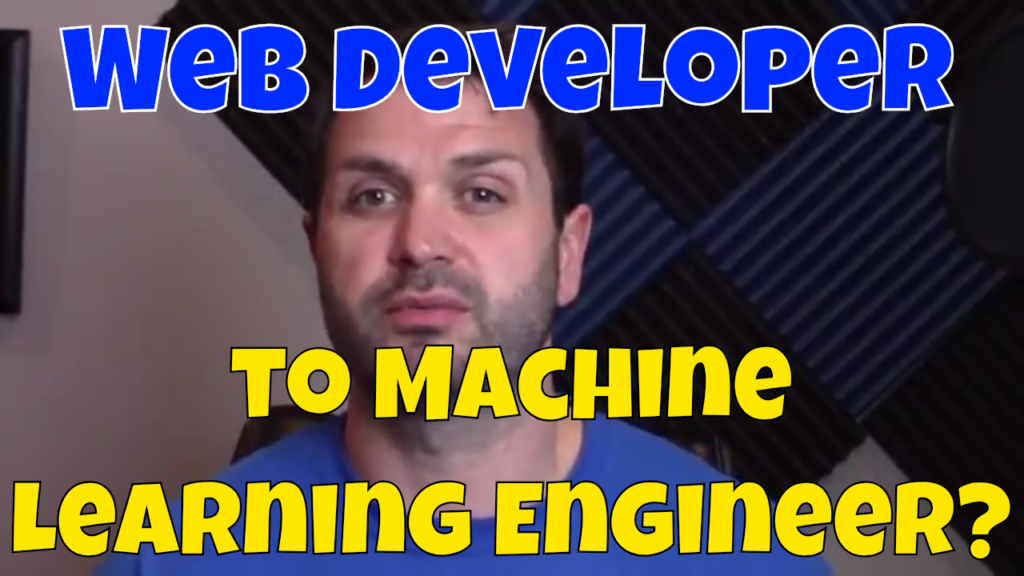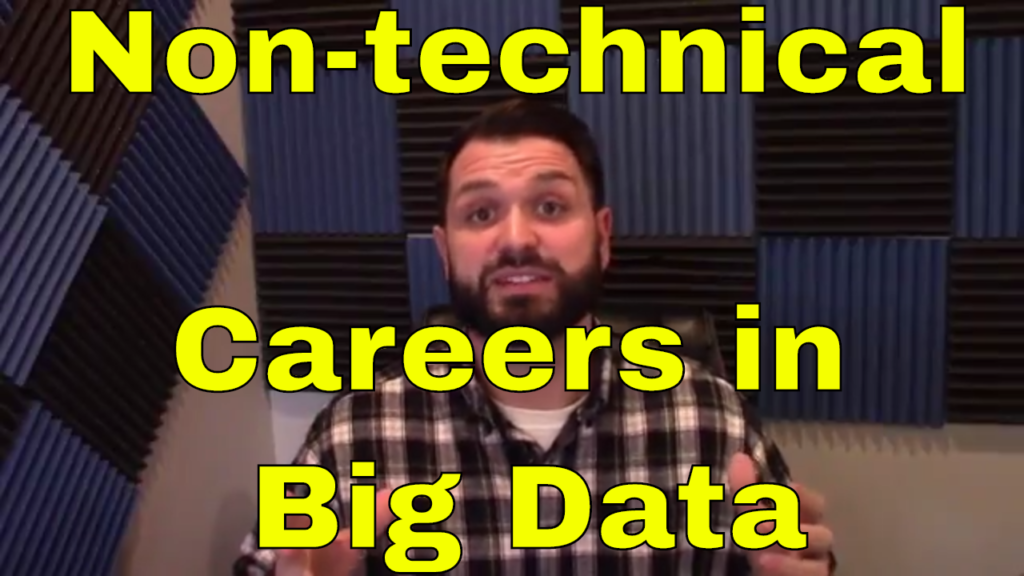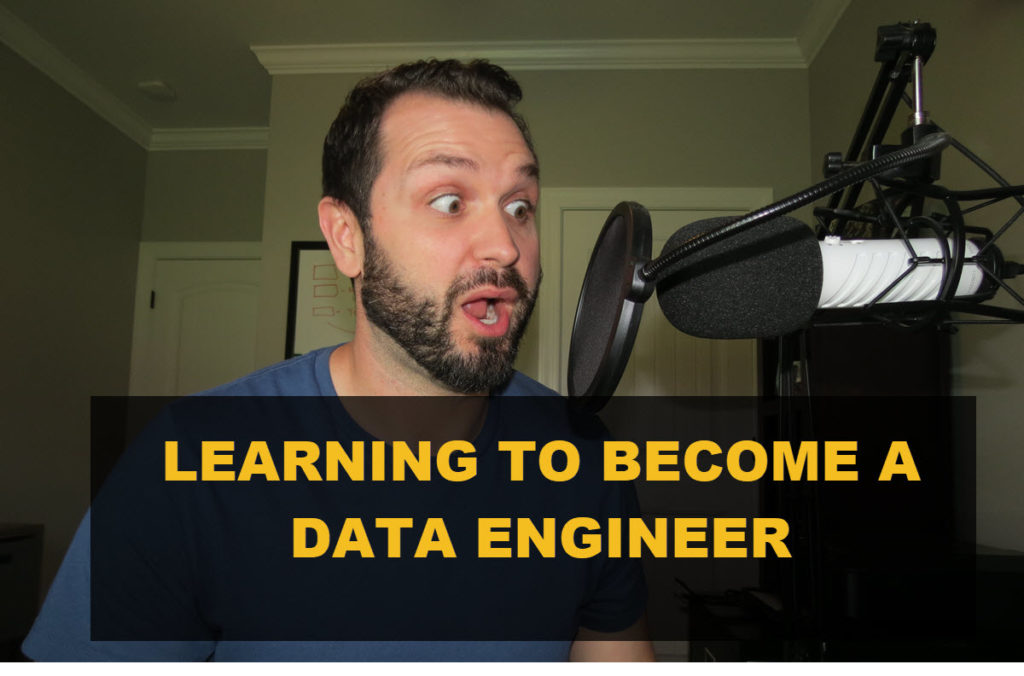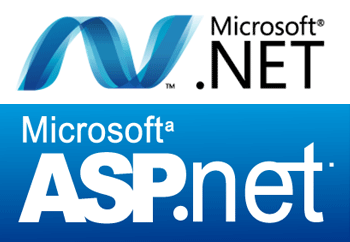Big Data Product Marketing Manager
Ever wondered how to get involved in Big Data outside of Data Engineering or Data Science? Well let me tell it’s totally possible. All the roles on Big Data aren’t necessarily technical in nature. In this episode of Big Data Big Questions we explore the journey of Erin K. Banks into Big Data Product Marketing Manager. Data Teams and Product have many different roles that ensure they can achieve their mission. Product Marketing Manager covers a wide range of responsibilities and requires a unique set of skills.
Learn how to get involved in Product Marketing as Erin talks about her background as IT support into Sales Engineering and then Marketing.
The Role of Product Marketing Manager
Make sure to watch the full video with Erin K. Banks on the Role of the Product Marketing Manager.
Want More Data Career Tips?
Sign up for my newsletter to be sure and never miss a post or YouTube Episode of Big Data Big Questions where I answer questions from the community about Data Career questions.
